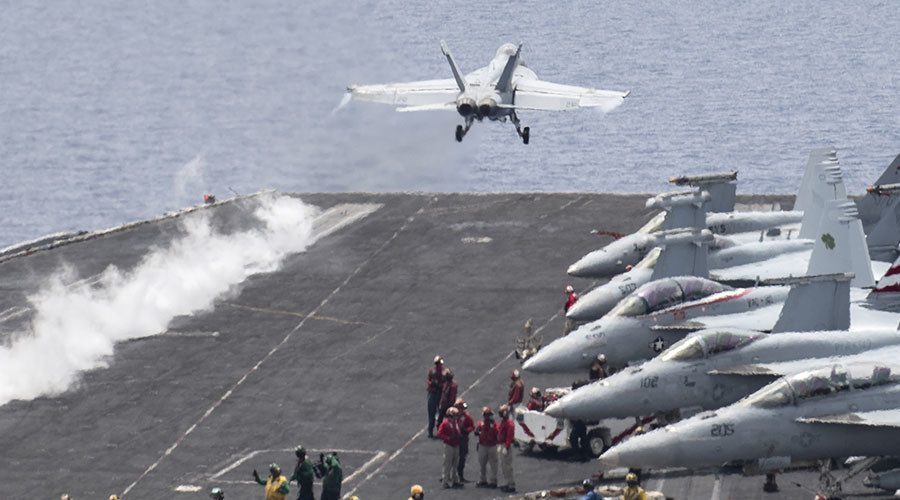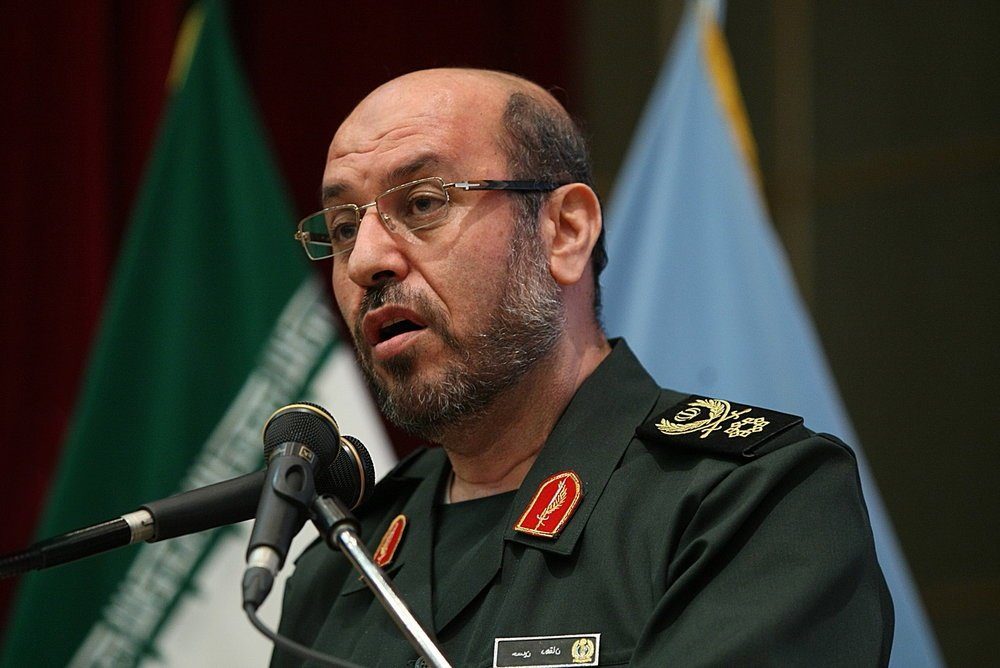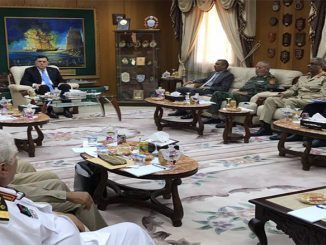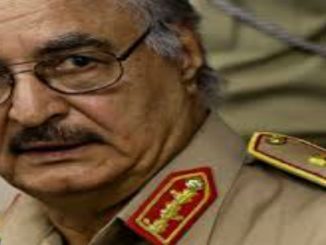
U.S. warplanes have begun to strike the Islamic State’s stronghold city of Sirte for the first time, in response to the request of the Government of General Accord (GNA), known as the UN-backed unity government.
Fayez al-Serraj, who heads the Western-backed unity government, said in a video statement that he had requested air support from a coalition of nations led by the United States. The U.N.-backed Libyan government attempts to retake the area by deepening American involvement in efforts to defeat the group (ISIS) in North Africa, said the Wall Street Journal.
Pentagon spokesman Peter Cook announced that the U.S. aircraft struck Islamic State vehicles and a tank in the coastal city of Sirte, a critical base for the extremist group outside its self-declared caliphate in Iraq and Syria.
This is not the first time that theUS strikes ISIS targets in Libya but this it is the first time to intervene with a request from a Libyan official group. The WSJ said “American airstrikes have hit individual Islamic State targets, including a training camp, on two prior occasions in Libya. But Monday’s actions mark the first time they have come to the aid of local Libyan forces carrying out a traditional ground offensive to recapture territory from Islamic State.”
ISIS has controlled Sirte, which lies on the Libyan coast and became the “caliphate’s” capital in North Africa. Since late May, Al Bunyan Al Marsoos (known also as the Solid Structure) military operations room, which draws fighters from Misrata, and other forces have been closing in on Sirte.
However, in a sudden development, military operation room of Sirte sent a letter to the Prime Minister of the Government of National Accord headed by Fayez al-Serraj calling for U.S. airstrikes on ISIS in Sirte.
In the letter, Solid Structure said they wanted the help of the U.S. warplanes to target ISIS locations in Sirte with prior mapping out and laying of target spots by the operation on the ground.
Libyan official news agency published excerpts of the letter that said that some dangerous targets are inside the city and targeting them requires military techniques that are unavailable at the Solid Structure.
The operation room declared that fierce clashes, which are still taking place in Sirte, led to the death of 338 soldiers and the injury of 1500 others. The room explained that the nature of the city and the enemy’s tactics and actions are delaying the liberation and causing this high number of casualties
The US President Barack Obama approved the airstrikes in response to a formal request for assistance from the U.N.-backed government, reported WSJ.
The Pentagon said the U.S. would continue to conduct strikes at the Libyan government’s request to keep up momentum against Islamic State in Sirte.
Mr. Cook said, “They have made significant progress in Sirte already on their own. “He continued, “And we believe this can make a difference, hopefully in a short amount of time.”
Gen. Thomas Waldhauser, who heads U.S. Africa Command, will be responsible for approving future strike requests in the Sirte campaign, Mr. Cook said.
Ismail Shukri -head of military intelligence for the militias fighting ISIS -said U.S. airstrikes had come later than necessary in the campaign for Sirte. “We needed them earlier in the battle when it was open warfare and [Islamic State] were manning heavy artillery,” he said. Now his forces are facing snipers and ground fighters in urban combat.
Mr. Cook said the U.S. received the request for assistance from Libya’s unity government in recent days. “They have not up till now requested this kind of assistance,” he said. “Now they have, given that they’re in Sirte, that they’re taking on ISIS. While they’re having success, they do see areas of opposition, areas where ISIS is dug in.”
On July 18, Chairman of the Joint Chiefs of Staff Gen. Joe Dunford estimated that “just a few hundred” Islamic State fighters were left in the city of Sirte itself.
In fact, there is no doubt that the victory over Islamic State in Sirte would deprive the group of a new staging ground for international attacks as Sirte location on the Mediterranean coast, in particular, and Libyan borders, in general, allow ISIS an access for smuggling their elements to Europe.
Moreover, the victory over ISIS would give a push to the U.N.-backed government in its bid to reassert control over a swath of the divided nation.
“But the recapture of territory from Islamic State in Libya does not necessarily reduce tensions among various factions allied against the extremist group in the country—a similar problem the U.S. faces in Iraq and Syria,” said the WSJ.
Anthony Cordesman, Arleigh A. Burke Chair in Strategy at the Center for Strategic and International Studies said, “The problem I think we need to face in Libya, and we have to face it in Syria and Iraq, is that defeating ISIS doesn’t bring unity.’ He added, “It doesn’t necessarily bring an end to the fighting.”
Still, Mr. Cordesman said it makes sense for the U.S. to provide air power when it can identify a local force fighting what is clearly an international threat. It becomes more difficult for local forces to recapture territory from Islamic State the longer the group holds it and installs booby traps and mines. He said,“Even a small amount of air power can often make the difference.”
Washington’s deeper involvement in Libya comes as the U.S. and its coalition partners step up their campaign against Islamic State in Iraq, Syria and Afghanistan through a strategy of backing local forces with airstrikes, advice and materiel. In Syria, U.S. airstrikes and advisers are helping Arab and Kurdish fighters retake the city of Manbij, while in Iraq, American troops are preparing Iraqi forces to recapture Mosul.
In Libya, the U.S. has shied back, carrying out only limited operations against Islamic State in part because of divisions in the country’s government and resistance to foreign troops among locals.
In this context, Mr. Cook said the U.S. precision airstrike capabilities could help local Libya forces move into urban areas of Sirte without causing excess civilian casualties. He also added that the U.S. military would remain rigorously involved and vet proposed strikes.
No U.S. ground forces would be involved in the mission in Sirte, said Mr. Cook. But U.S. Special Operations teams have been present in Libya to establish contacts and communications base with local forces on and off for some time. However, Mr. Cook declined to comment on their disposition, calling their activities “separate and apart from this operation,” reported WSJ.
After the 2011 ouster of dictator Muammar al-Qaddafi , Libya became embroiled in a chaotic contest for power. The struggle between competing political and armed factions created a vacuum that allowed Islamic State and other extremist groups to thrive.
At the height of that struggle, in early 2015, Islamic State seized Sirte, and a 125-mile stretch of coastline that surrounds it, transforming the port into a foothold in North Africa and a welcoming ground for foreign fighters and weapons. The birthplace of al-Qaddafi, the symbolic city became the de facto headquarters of Islamic State’s most powerful branch outside Iraq and Syria.
The turmoil and political vacuum in the Libyan state led to the presence of the two main rival governments in Tripoli and Tobruk. Then, a third government, known as the U.N.-backed government led by al-Serraj in the western city of Tripoli, has been added to the political conflict in the country. None of them were able of reaching political reconciliation as each government is seeking to dominate the scene which thus enabled ISIS to expand its activities in the country. Moreover, fighting ISIS has recently become the decisive battle for each government to win the Western support. Therefore, capturing Sirte isn’t only a tactical battle, but it is a political battle, too.
Accordingly, the recent US military intervention would weaken ISIS but it wouldn’t help unify the different factions in the country. It would also widen the gap between the GNA and the House of Representatives -loyal to Gen Khalifa Haftar- in Tobruk. In this context, the member of the defense committee in the HoR, Tarek al-Grouchi, has criticized Fayez al-Serraj’s request to the US without consulting the HoR and Gen.Khalifa Haftar, saying that,”It is danger precedent and violation of the people’s rights.” He also called the people to demonstrate against the US strikes.



